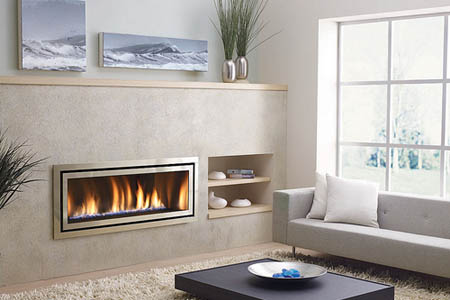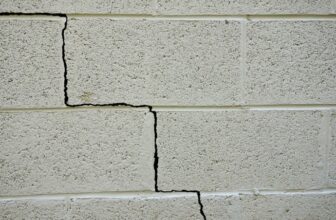
Gas fireplaces have become a popular choice among homeowners for their convenience, efficiency, and aesthetic appeal. These fireplaces offer a realistic flame, instant warmth, and hassle-free operation. However, like any home appliance, gas fireplaces come with their own set of advantages and disadvantages. In this article, we will delve into the various aspects of gas fireplaces, discussing their benefits, drawbacks, and important considerations. Whether you are considering installing a gas fireplace or simply want to learn more about them, this article will provide you with the necessary information to make an informed decision.
Gas Fireplaces: An Overview
Before we explore the advantages and disadvantages of gas fireplaces, let’s first understand what they are and how they work. Gas fireplaces are heating appliances that use natural gas or propane as a fuel source to produce heat and simulate a real wood-burning fire. These fireplaces typically consist of a combustion chamber, gas burner, logs or artificial fire media, and a venting system to expel the combustion byproducts. The flames are ignited by an electronic ignition system or a pilot light, and the fireplace can be controlled with a thermostat or a remote control.
Gas fireplaces offer the ambiance of a traditional fireplace without the hassle of wood procurement and cleanup. They are available in various styles, including inserts that can be installed in existing masonry fireplaces, freestanding units, and built-in models. Now that we have a basic understanding of gas fireplaces, let’s explore their advantages and disadvantages in detail.
Advantages of Gas Fireplaces
1. Convenience and Ease of Use
Gas fireplaces are incredibly convenient and easy to use. With just a flip of a switch or a push of a button on the remote control, you can instantly ignite the flames and enjoy the warmth. Unlike wood-burning fireplaces that require constant tending and maintenance, gas fireplaces require minimal effort. There is no need to chop or store firewood, and you don’t have to worry about cleaning up ashes and soot.
2. Clean and Efficient Heating
One of the significant advantages of gas fireplaces is their clean and efficient heating. Unlike wood-burning fireplaces that emit smoke, particulate matter, and potentially harmful gases, gas fireplaces produce clean combustion with minimal emissions. They have high energy efficiency ratings and can provide consistent heat output. Gas fireplaces also allow for precise temperature control, ensuring optimal comfort in your living space.
3. Realistic Flame Appearance
Gas fireplaces are designed to replicate the appearance of a traditional wood-burning fire. The gas burner and logs or fire media create a realistic flame that dances and flickers, providing a cozy and inviting ambiance. Many gas fireplaces also come with adjustable flame settings, allowing you to customize the flame height and intensity to suit your preferences.
4. Versatile Installation Options
Gas fireplaces offer versatile installation options to accommodate different home layouts and design preferences. They can be installed in existing masonry fireplaces, replacing the wood-burning system with a more convenient and efficient alternative. Gas fireplace inserts are particularly popular for their ease of installation and ability to transform an old fireplace into a modern heating source. Freestanding and built-in gas fireplaces provide flexibility in terms of placement, allowing you to add a fireplace to virtually any room in your home.
5. Continuous Heat Source
Unlike wood-burning fireplaces that require regular fueling and maintenance to keep the fire going, gas fireplaces provide a continuous heat source. With a steady supply of gas, you can enjoy the warmth and ambiance for as long as desired. This makes gas fireplaces ideal for extended periods of use, such as during chilly winter evenings or when you want to create a cozy atmosphere for entertaining guests.
Disadvantages of Gas Fireplaces
1. Initial Cost
One of the primary disadvantages of gas fireplaces is their initial cost. Compared to traditional wood-burning fireplaces, gas fireplaces can be more expensive to purchase and install. The cost includes the fireplace unit itself, installation fees, venting system components, and any necessary modifications to the existing structure. However, it’s essential to consider the long-term benefits and potential energy savings that gas fireplaces offer.
2. Dependence on Utility Services
Gas fireplaces rely on a constant supply of natural gas or propane. This dependence on utility services means that if there is a gas outage or interruption, your gas fireplace will not function. It’s crucial to have alternative heating sources in place, especially in regions where gas supply interruptions are common. Additionally, the cost of natural gas or propane can fluctuate, affecting your overall heating expenses.
3. Limited Authenticity
While gas fireplaces strive to replicate the appearance of real wood-burning fires, some purists argue that they lack the authenticity and charm of traditional fireplaces. The artificial logs or fire media may not have the same organic feel as real wood, and the flame patterns may not be as unpredictable. However, technological advancements have significantly improved the realism of gas fireplaces, making them a viable alternative for those who value convenience and cleanliness.
4. Potential Venting Requirements
Gas fireplaces require proper venting to expel the combustion byproducts, including carbon monoxide and other potentially harmful gases. Depending on the type of fireplace and the installation location, venting requirements may vary. In some cases, venting options may be limited, requiring additional modifications or professional assistance. It’s crucial to ensure that your gas fireplace is properly vented to maintain indoor air quality and safety.
5. Limited Heating During Power Outages
Gas fireplaces rely on electricity to power the ignition system, fan, and other components. In the event of a power outage, gas fireplaces may not provide heat unless they are equipped with battery backup systems. It’s important to consider this limitation and have alternative heating sources available in case of emergencies or prolonged power outages.
FAQs (Frequently Asked Questions)
Q: Are gas fireplaces safe to use?
A: Yes, gas fireplaces are safe to use when installed and operated correctly. It is crucial to follow the manufacturer’s instructions and have your fireplace professionally installed to ensure proper ventilation and safety.
Q: Can gas fireplaces be used as the primary heating source?
A: Gas fireplaces can provide supplemental heat to specific areas of your home, but they are not typically designed to be the primary heating source. They are more efficient at heating small to medium-sized spaces and are often used in conjunction with other heating systems.
Q: Do gas fireplaces require regular maintenance?
A: Yes, gas fireplaces require regular maintenance to ensure optimal performance and safety. This includes annual inspections, cleaning of the burner and venting system, and checking for gas leaks. It’s recommended to have a professional service your gas fireplace regularly.
Q: Can I convert my wood-burning fireplace to a gas fireplace?
A: Yes, it is possible to convert a wood-burning fireplace to a gas fireplace by installing a gas fireplace insert. This allows you to enjoy the convenience and efficiency of a gas fireplace while preserving the existing fireplace structure.
Q: Are gas fireplaces energy efficient?
A: Yes, gas fireplaces are generally more energy efficient than wood-burning fireplaces. They provide better heat output and can be controlled more precisely, allowing for optimal energy usage. However, the overall efficiency depends on factors such as insulation, fireplace design, and usage patterns.
Q: Can I install a gas fireplace myself?
A: It is highly recommended to have a professional install a gas fireplace. Proper installation is crucial for safety and performance. Certified installers have the knowledge and expertise to ensure that the fireplace is correctly vented and connected to the gas supply.
Conclusion
Gas fireplaces offer numerous advantages, including convenience, clean heating, realistic flame appearance, versatility in installation, and continuous heat source. However, they also have some drawbacks, such as the initial cost, dependence on utility services, limited authenticity, potential venting requirements, and limited heating during power outages. By weighing the pros and cons, you can determine whether a gas fireplace is the right choice for your home. Consider your heating needs, budget, and personal preferences before making a decision. Gas fireplaces can provide a cozy and inviting atmosphere while offering efficient warmth for you and your family to enjoy.




